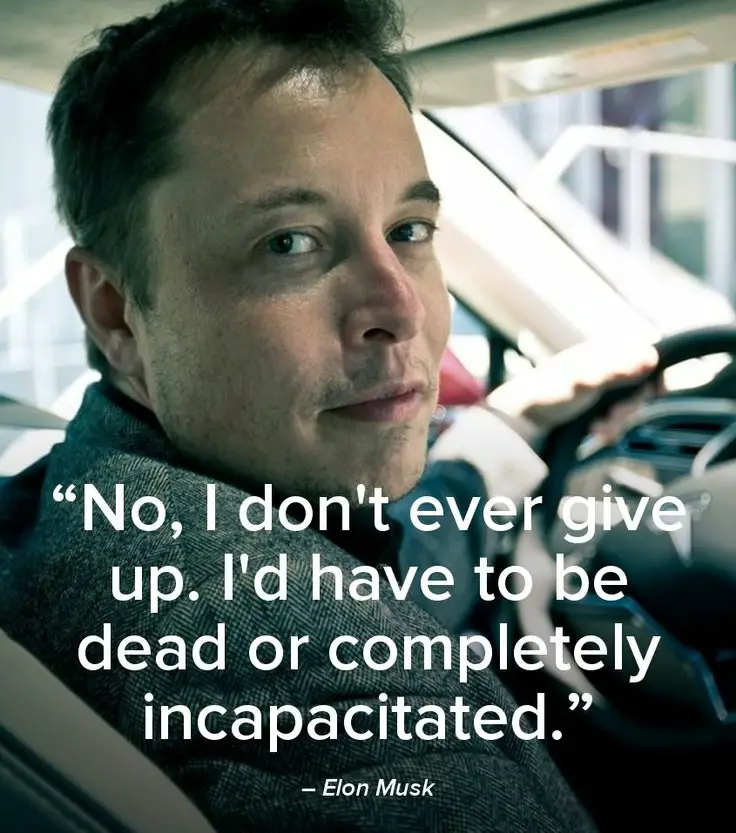Analysis
Theme
One of the most prominent themes of this book is that hard work and determination triumph over the impossible. Elon Musk highly values these traits, and certainly demonstrates this theme through all of his endeavours. At one point in the book, Vance describes a week of Musk’s schedule, which involves flying back and forth across the country to work at both of his companies and appear on talk shows, while also allotting time to his sons. He somehow manages to have a personal life while juggling the CEO position of two major companies in completely different fields. This, obviously, is not an easy task. It is through his extreme work ethic and determination to complete his goal that he is able to achieve this- according to his now ex-wife, Justine Musk, he would often come home from work at 11 and then work some more. His success also has to do with his ability to handle stress, which is one of his distinguishing characteristics. Musk will not bend in a tough circumstance. As said by his friend Jim Ambras, “That’s Elon. Do or die but don’t give up.”

Tone
Ashlee Vance tried to write this book as unbiased as possible, presenting all sides of the story. Most biographies only focus on the parts favorable to a glorified subject; however, Vance put many hours into interviewing and acquiring the views of many people, not just his or Musk’s alone. While writing this book, Vance said, “[...] I could not let him read the book, for professional, personal, and practical reasons. Musk has his version of the truth, and it’s not always the version of truth that the rest of the world shares” (2). Thus, the author’s tone came off as very truthful.
There was also a level of curiosity and thoroughness to the story on the author’s part. In the beginning, Vance described Silicon Valley (and the world’s) fascination with the man who rivaled Steve Jobs in achievements. Vance’s doggedness comes naturally as a reporter. It also originates from when Musk had initially refused to help in writing this book. Going back to the theme, Vance did not stop working on the book and Musk finally gave in, admiring his determination. On this, Vance said, “One thing that Musk holds in the highest regard is resolve, and he respects people who continue on after being told no” (3).
Additional Resource: Interesting interview with Vance on Elon Musk

Mood: Reader
In the book, Musk can often come off as harsh and abrasive- for example, when he fires marketing people who make grammatical mistakes in their emails, or employees that miss an event to witness something like the birth of their child. He holds everyone around him at an extremely high standard and expects them work and think as he does.
One of the first things that I noticed about this book was that Vance does not shy away from this side of Musk. It was a rather jarring realisation, as I expected biographies to generally praise the subject. The openness to imperfection adds a sense of reality, that Musk should not be viewed blindly as saint simply based on his accomplishments. He in fact, can be quite the opposite.
This also leads to a point that seems to be communicated- that even though, yes, Elon Musk is a real person, the main point of the book isn’t really about his personality but about what he’s doing for the world. Vance once said, “Musk had somehow delivered the biggest advances the space, automotive, and energy industries had seen in decades in what felt like one fell swoop” (6). He is preparing for the future in ways that have never been tried before, and that is inspiring.

